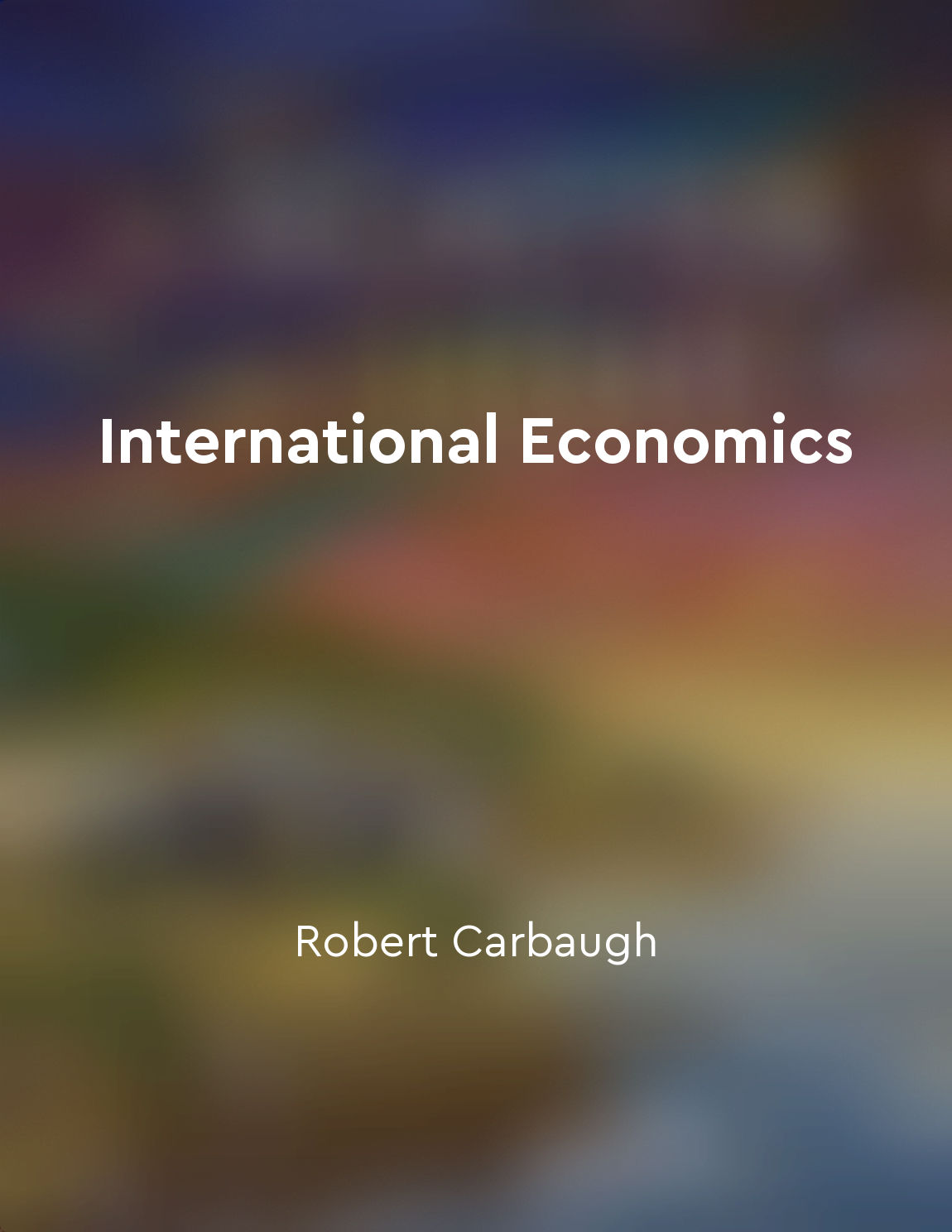Trade restrictions from "summary" of The Economic Consequences of Peace by John Maynard Keynes
Trade restrictions, in the form of tariffs and quotas, are often implemented by governments as a means to protect domestic industries from foreign competition. While these restrictions may provide short-term benefits to the protected industries, they can have long-term negative consequences for the overall economy. By limiting the flow of goods and services across borders, trade restrictions can lead to reduced competition in the domestic market. This lack of competition can result in higher prices for consumers, as domestic producers are able to charge more for their goods without fear of being undercut by cheaper imports. In addition, the lack of competition can also stifle innovation and efficiency, as domestic producers have less incentive to improve their products or production processes. Trade restrictions can also have negative effects on international relations, as they can lead to retaliatory measures from other countries. When one country imposes tariffs or quotas on another country's exports, the affected country may respond in kind, leading to a trade war that can harm the economies of all involved. Furthermore, trade restrictions can distort resource allocation within an economy. By protecting certain industries from foreign competition, governments are essentially picking winners and losers in the market. This can lead to resources being misallocated, as resources are directed towards less efficient industries that may not be able to compete on the global stage. In the long run, trade restrictions can hinder economic growth and development. By limiting access to foreign markets, countries are limiting the potential for their industries to grow and expand. This can have a ripple effect throughout the economy, leading to lower levels of investment, employment, and overall economic activity.- While trade restrictions may provide short-term benefits to certain industries, they can have long-term negative consequences for the overall economy. By limiting competition, distorting resource allocation, and hindering economic growth, trade restrictions can ultimately harm the economy as a whole.
Similar Posts

International financial management involves managing financial activities across borders
International financial management involves managing financial activities across borders. This concept is crucial for businesse...
Market participants adjust their behavior in response to economic conditions
In an economy, market participants are always adapting and responding to the prevailing economic conditions. This adjustment in...
Specialization increases productivity and efficiency
Specialization is a fundamental concept that drives human progress and innovation. By focusing on a specific task or skill, ind...

Exchange rates play a crucial role in international trade
Exchange rates are a fundamental aspect of international trade. They determine the value of one country's currency in terms of ...

Monopolies can lead to higher prices
The idea that monopolies can lead to higher prices is a fundamental concept in antitrust law. When a single company has control...
Economics can help create a more sustainable future
The field of economics can play a crucial role in shaping a sustainable future for our planet. By applying economic principles ...
Population growth impacts economic expansion
In the process of economic growth, the expansion of the population plays a crucial role. As the population grows, so does the l...
Environmental sustainability is critical
Environmental sustainability is critical for the long-term well-being of a society. It refers to the maintenance of natural res...

